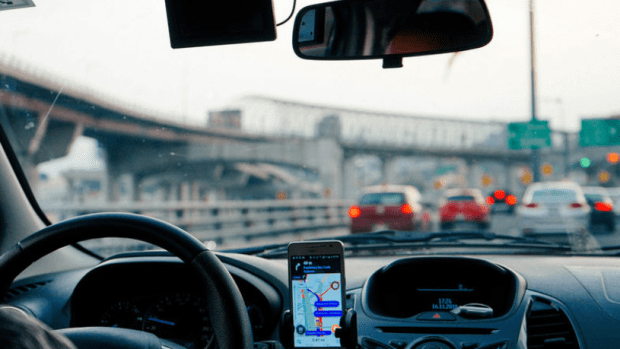Autonomous vehicles may make our skies dirtier, even if they’re shared and electric, a new study finds.
According to a survey conducted by researchers at the University of Wisconsin-Madison, if an autonomous taxi were made available tomorrow, residents of the Athens of the Midwest would choose it over a bus, bike, or personal car in 31 percent of randomized travel scenarios
Worse, the study found that AVs could tempt erstwhile transit passengers to abandon fixed-route buses or their bikes, even in the transit-rich and Platinum Bicycle Friendly community of Madison. When the researchers presented their subjects with a choice between waiting one to five minutes for an AV that cost 85 cents a mile and waiting five to 15 minutes for a bus that cost a flat $2 fare, the respondents were more likely to choose the AV in most situations, even though the shortest possible trip length (three miles) meant the auto-taxi would cost more.
Shifting even a small percentage of trips from bus or bike to (usually) single-occupancy robocar would lead to a 5.7 percent annual rise in greenhouse-gas emissions, according to the researcher's traffic models. That’s in part because about 43 percent of Wisconsin’s electricity still comes from coal plants (and many states are even worse). With electricity-intensive EVs demanding more power from the grid, the state might struggle to make an efficient transition to renewable energy, experts say. The effects of "deadheading," or the time robocars spend driving around empty between fares, also would crank up carbon emissions.
The study builds on broader research about the potential downsides of the AV revolution. Techno-optimists long have argued that electric AVs could reduce traffic deaths and help curb climate change without a substantial rethinking our car-centric transportation framework. Many proponents of self-driving cars assumed that the rise of autonomous vehicles would go hand and hand with the demise of private vehicle ownership, with the convenience and affordability of shared robo-taxis luring drivers away from the expense and hassle of maintaining and storing an automobile.
But even with the costs of car ownership factored in, AV taxis still didn’t beat private vehicle ownership for everyone. The single-occupancy car was the survey respondents’ preferred mode in 32 percent of scenarios — one percent more than self-driving taxis that, in many cases, cost their passengers much less.
Even a partial shift to autonomous e-taxis may be worse than no shift at all. A recent study of four of the largest U.S. metro areas found that customers of (for now, human-operated) Ubers and Lyfts added more than twice as many vehicle miles to their local roads than before the advent of ridehail services, in large part because their drivers burn so much gas en route to picking up their next fare, which usually involves just a single passenger. The same study found those VMT impacts would not disappear unless e-taxi routes cut out almost all “deadheading” (which experts think is impossible), and 85 percent of app-taxi passengers shared their rides with two or more other passengers (which the vast majority of app-taxi customers have proved unwilling to do.)
Removing drivers from app taxis would do nothing to reduce the effects of all that added driving, including congestion, greater wear and tear on roads, the proliferation of car-centric community design and, continued (if reduced) traffic violence on roads, at least until autonomous vehicles are perfect at crash avoidance, which they're categorically not right now.
The Madison survey is specific to the Badger state, and further research is needed to model the effects of shared AVs in other communities, especially as the country transitions to renewable energy sources. But until then, the study shows that there may be unintended consequences to going all-in on self-driving cars — and that the benefits of the mode can be achieved by another vehicle that you don’t have to drive yourself: the bus






